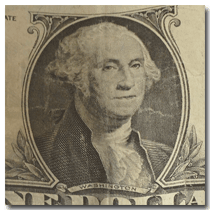 A year ago I decided to start this “Quick Tip” series with the intention to publish actionable ideas that help you being better and getting more done. Yet, looking through my posts I realized I had not written a single post about financial matters in this series. And that despite knowing how distracting financial issues can be.
A year ago I decided to start this “Quick Tip” series with the intention to publish actionable ideas that help you being better and getting more done. Yet, looking through my posts I realized I had not written a single post about financial matters in this series. And that despite knowing how distracting financial issues can be.
I am not your mother and I am not Clark Howard, whom I listened to for years until they took him off the public radio channel I used to listen to. Or he left, I don’t know.
What I know and what you know is that keeping a budget is the only way to have peace of mind about your finances. You just need to know what is going on on your bank account(s). Period.
Isn’t money often the biggest elephant in the room? I cannot tell how many project meetings I suffered through in which the fact that funds are limited abruptly ended two hours of big visions about (im)possible solutions. Don’t get me wrong, I am living for big visions, but they have their time.
If your basement is under water because a pipe leaks, you better call the plumber first and then think about how much you rather be on a tropical island sipping a Piña Colada in the shade of palm trees. When you’re a standing feet deep in gunk you better know how much the plumber can costs you to still be able to make this trip.
Or at least you want to know how much you can put aside each month to make this trip in the foreseeable future.
Because tracking every one of my expenses by hand is a nightmare I am more than happy to save me all the time and hassle with handy software solutions. I am personally using Mint for years and I am pretty happy with it. It is free, easy and quick to set up and doesn’t require a ton of attention on a monthly basis. But I am also sure that is also the case for a lot of the other solutions. They all have a bit different focus. Getting software that runs on your desktop can have an advantage, too. Important is, chose one solution that you are able to use. It makes a big difference, trust me.
Just one example A few months back I wanted to see whether my spending for groceries and gas had increased over the last few years (oh yes!). Imagine how long this would take you to find out based on your bank statements? With Mint it only took me a few minutes. Knowing is always better than guessing and having a system in place saves time.
I haven’t personally tested most of them, so I cannot give you the full spiel on pros and cons. But since I wanted to make your life easy if you don’t want to use Mint or are just looking for other alternatives here is the list of what I found. All these help you track your money:
Online Software
- Budgetpulse – “Giving Life To Your Finance.”
- Budgetsimple – “Eliminate Debt. Build Wealth. Budget Simple.”
- BudgetTracker: “Manage your money to get and stay out of debt.”
- Buxfer – “Easy Online Money Management.”
- ClearCheckbook – “Money Management Made Easy.”
- Mint – “It’s easy to understand what’s going on with your money.”
- Moneystrands: – “Free Personal Finance Software, Personal Budgeting, Budget Software, Online Management.”
- Mvelopes – “We Push The Envelope.”
- Pocketsmith – “Smart Budgeting & Personal Finance Software.”
- Update (9/13/2015): Personal Capital – “The Modern Way to Mange Your Net Worth”
Desktop Solutions
- AceMoney – “The best Quicken or Microsoft Money alternative financial software you can find”
- Quicken -“Know your money – Better your life”
- Moneydance – “…easy to use personal finance software that is loaded with all the features you need: online banking and bill payment, account management, budgeting and investment tracking.”
- YNAB – “You Need A Budget (YNAB)”
Please comment if you are using budgeting software, how you like it or if you have any additions to this list.
This is Quick Tip no 53.